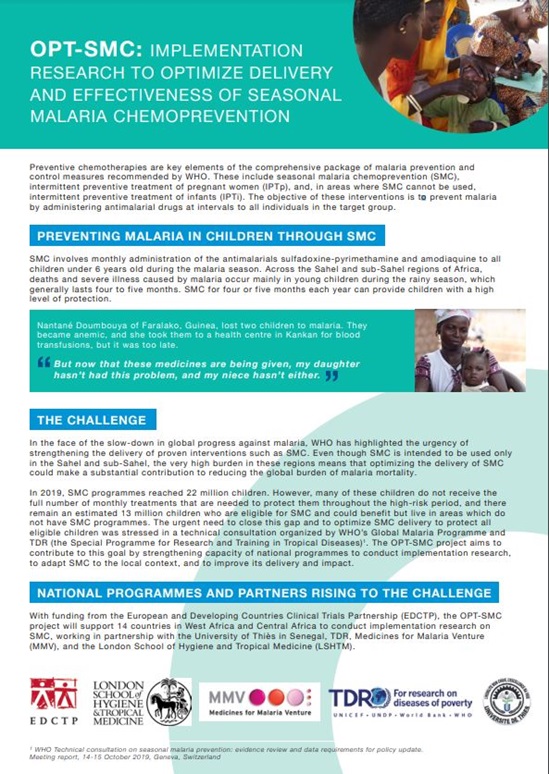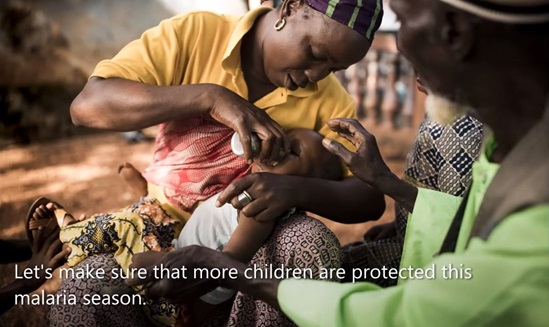
Seasonal malaria chemoprevention: OPT-SMC project
Overview
Seasonal malaria chemoprevention (SMC) involves monthly administration of the antimalarials sulfadoxine-pyrimethamine and amodiaquine to all children aged under six years during the malaria season. Following a 2012 WHO recommendation, 13 sub-Saharan African countries (Burkina Faso, Cameroon, Chad, Gambia, Ghana, Guinea, Guinea Bissau, Mali, Mauritania, Niger, Nigeria, Senegal and Togo) with high seasonal malaria transmission have adopted and integrated SMC into their policy documents and strategic plans.



